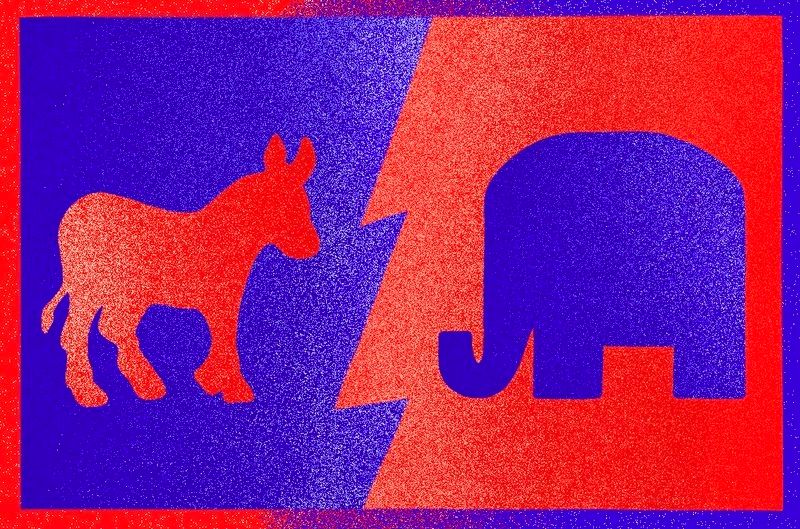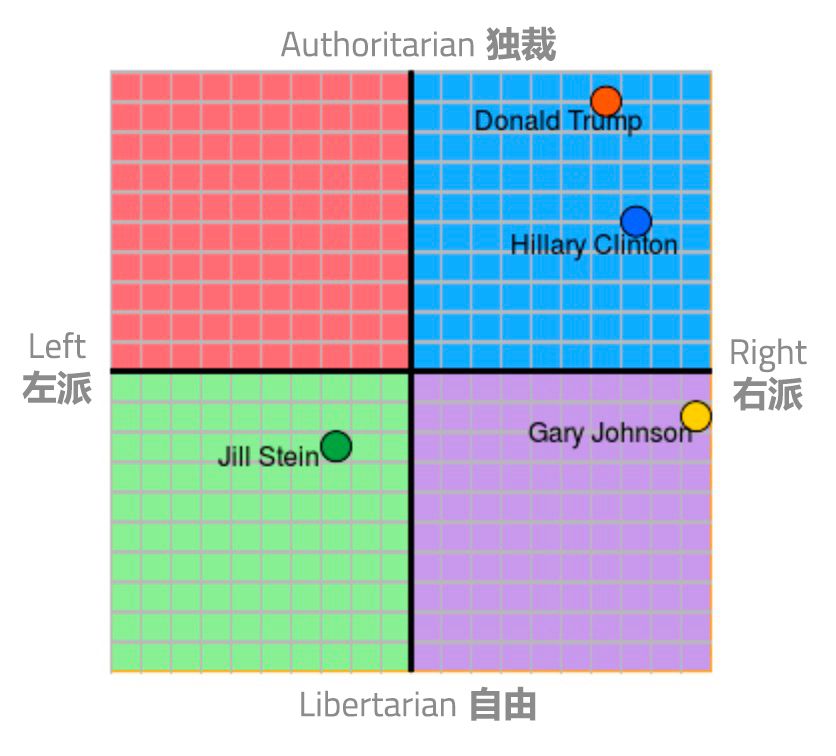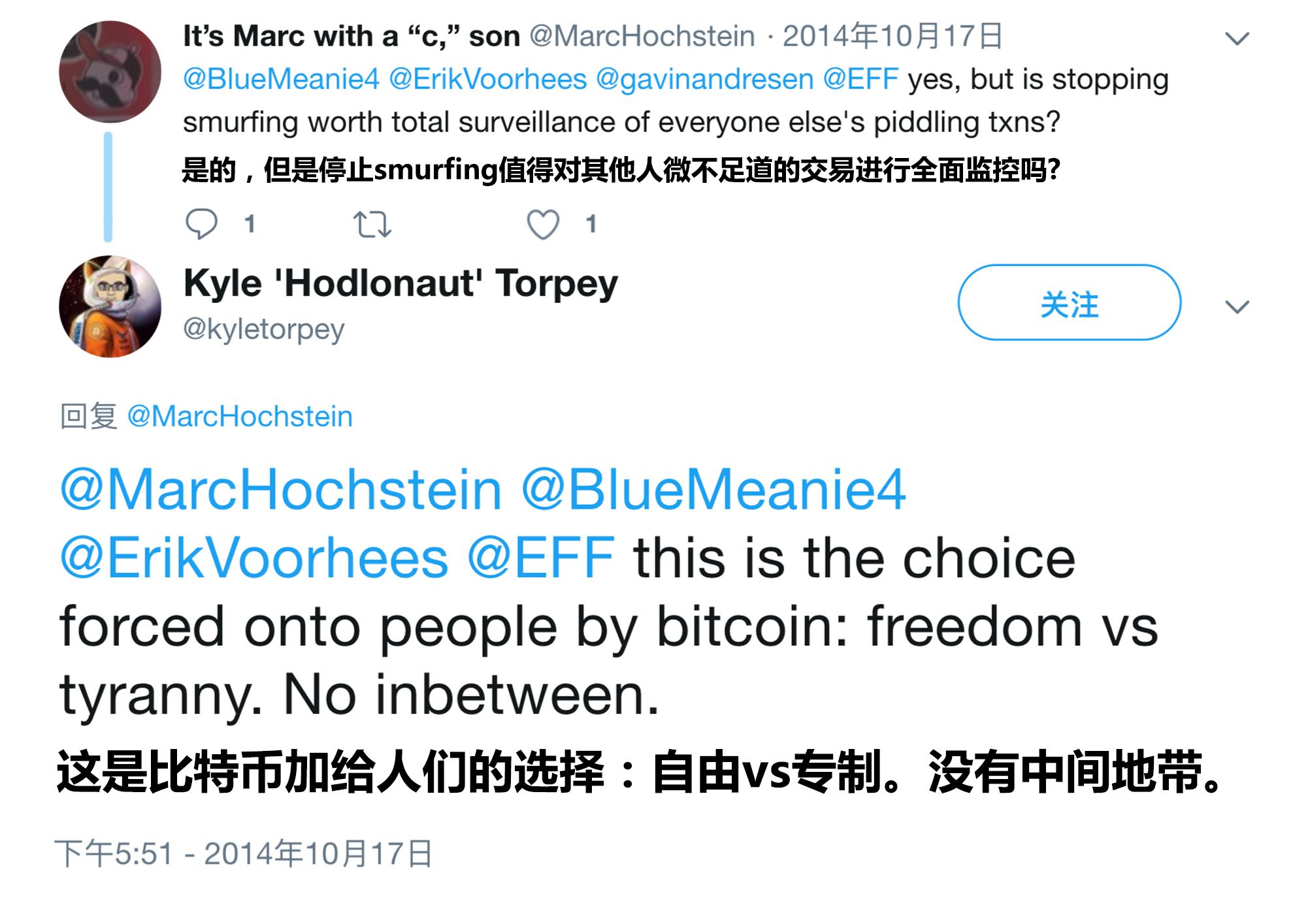The battle between bitcoin: big data vs personal privacy

Traditional political factions are usually divided into four categories: the liberal left, the totalitarian left, the liberal right, and the totalitarian right. The left tends to be a more controlled economy, while the right tends to be free. Liberals tend to pursue more liberal social policies, while authoritarians want to control people's privacy.

Political tendencies are usually defined as such. But new technologies such as bitcoin and p2p encryption are changing this. In a way, our digital life is more important than ours in the real world.
- DCF model and crypto asset valuation
- Executives sentenced, currency prices were low, Korea's fifth largest cryptocurrency exchange COINNEST ceased operations
- You said that you are a Buddha holding money? NO, you are just a turtle
As technologists have repeatedly explained to legislators around the world, encryption technology is either secure or unsafe. Law enforcement agencies’ guarantees do not work because they create security holes. Just as encrypted messages sent over the Internet are either private or not.
This leads to two situations: the government can either obtain citizen's private information, financial and other personal data, or not. The current situation is black and white: people can either use encryption technology or live in a monitored country.

Totalitarians may want to obtain personal data to ensure that users comply with government-approved social norms; while leftists want to obtain financial data to ensure that citizens pay a “fair share” tax.
In an era of increasing digitalization, both political factions are eager to monitor effectively in order to bring their values into the digital arena. The libertarian right wing may be the only faction that does not want or need large-scale surveillance.
As a result, new political differences have emerged between those who support monitoring and support for privacy.
Peter Thiel and Reid Hoffman discuss this
In 2018, the Hoover Institution of Stanford University invited PayPal co-founder Peter Thiel and LinkedIn co-founder Reid Hoffman to discuss this new political paradigm.
The comparison of encryption technology with big data was originally proposed by Thiel in the discussion of centralization and decentralization.
Thiel said: "Although I think these issues are not completely certain, I do think that, to a certain extent, the two factions are very closely related to politics and centralization or decentralization." It is decentralization. Artificial intelligence is central. If you want to construct it from an ideology perspective, you can say that cryptography is liberal and artificial intelligence is communist."
He further elaborated on this point of view. He pointed out that artificial intelligence is about big data, and the government controls all of this data. These governments often know more about citizens than they know about themselves, and the government tries to maintain the operation of society through centralized control rather than spontaneous order. . Because the government is more regressive to decentralization, they are more inclined to support artificial intelligence than cryptocurrencies and blockchains.
Hoffman complements Thiel's analogy of libertarianism and communism. He said: "You can say that this is the contrast between "anarchy" and the rule of law."
Theil added: "I think artificial intelligence is about creating a more transparent world – making the world in a centralized context more transparent. Then your question is: What is the opposite of transparency? Is it crime or privacy?"
Where are we going?
This trend of using digital privacy as a key dividing line between political ideologies is hard to predict. It is not clear what will happen next.
Future developments may depend on leftist liberals, who will need to decide whether to focus on online privacy, because Bitcoin creates a coexistence of Internet finance and personal privacy.
In fact, the concept of anarchy in blockchain is limited. Although in some cases, the existence of something like Bitcoin may make tax collection more difficult. But in order to protect the source of income, governments may disguise the tax issue to the extreme. For example, government officials can appear in the home of citizens with guns and demand tax payments.
As more and more people begin to accept encryption technology, dragnet monitoring may become less useful, and the police's traditional methods will not be used to solve crimes as frequently.
Of course, this is based on the assumption that from an ideology perspective, advocates of online privacy will defeat the totalitarians. It's unclear whether a lot of people care about their personal data from Facebook, Google and government agencies.
After all, technology can make control more difficult if it is on the side of people who like strong privacy. How this will develop, the high probability will depend on the specific actions taken by the left and the totalists to protect the power distribution on the Internet and control the society.
(Source: BitcoinMagazine)
We will continue to update Blocking; if you have any questions or suggestions, please contact us!
Was this article helpful?
93 out of 132 found this helpful
Related articles
- Haier, who took the initiative to break himself, used the "blockchain + Internet of Things" to catch the intelligent age train
- Cai Weide: Digital legal currency or the 10th generation blockchain technology can be realized
- Introduction and practice of cryptography
- Looking at the bitcoin world after Assange was arrested
- The real touchstone of Bitcoin! ShapeShift CEO Erik Voorhees: Bitcoin will be the escape port when the next economic crisis comes
- Blockchain analysis tool can calculate tax, "four big" rushing beach encryption asset audit
- Spending $100 million a year, can the $200 million financing that ConsenSys seeks be completed?





